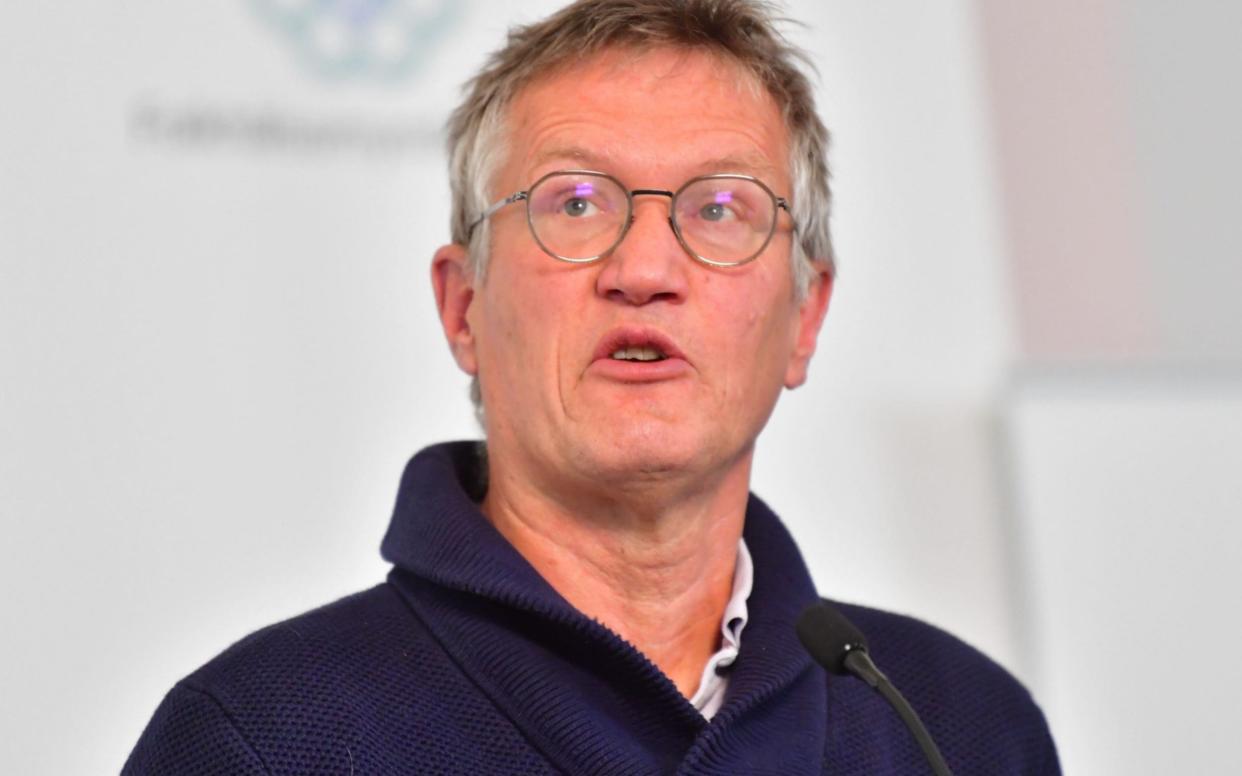Sweden becomes country with highest coronavirus death rate per capita

Sweden has now overtaken the UK, Italy and Belgium to have the highest coronavirus per capita death rate in the world, throwing its decision to avoid a strict lockdown into further doubt.
According to figures collated by the Our World in Data website, Sweden had 6.08 deaths per million inhabitants per day on a rolling seven-day average between May 13 and May 20.
This is the highest in the world, above the UK, Belgium and the US, which have 5.57, 4.28 and 4.11 respectively.
However, Sweden has only had the highest death rate over the past week, with Belgium, Spain, Italy, the UK and France, still ahead over the entire course of the pandemic.
State epidemiologist Anders Tegnell, the spokesman for Sweden's outlier coronavirus strategy, dismissed the figures on Tuesday night, arguing that it was misleading to focus on the death toll over a single week.
"This is something we should look at when it's all over," he told the Svenska Dagbladet newspaper. "It is of course terrible that we have such a higher death toll at our elderly care homes, and there are lessons to be learned for those who work in these institutions."
It comes after study found that just 7.3 per cent of people in Stockholm developed Covid-19 antibodies by late April, which could fuel concern that avoiding a lockdown may bring little herd immunity.
Sweden's decision to keep open schools, bars and restaurants, and to continue to allow gatherings of up to 50 people, has been praised by many of those seeking an early end to restrictions. Supporters argue that the country is better equipped to avoid a 'second wave' as the population may have built up a degree of herd immunity.
Mr Tegnell said on Wednesday that more than one in five people in Stockholm were believed to have developed antibodies to the virus, where over a third of Sweden's confirmed cases have been recorded.
But as its neighbours in Norway, Denmark, and Finland, who all put in place much tighter restrictions, have seen dramatically lower numbers of deaths over the past month, the strategy has also come under growing criticism.
Frodo Forland, Norway's state epidemiologist, last week complained that there had been almost no critical debate or media coverage of the high death rate in Sweden.
"It feels like you want to support your own government and strategy," he told the Svenska Dagbladet newspaper. "But Sweden is going against the whole world."
Lena Einhorn, a Swedish virologist and author, told the Daily Telegraph that she was frustrated that Tegnell and his team still refused to alter the country's strategy despite growing evidence of failure.
"They have made a decision and if they admit they have taken a bad decision that means taking responsibility for creating a bad situation," she said.
Einhorn is one of a group of 22 Swedish scientists and researchers who have from the start challenged the country's strategy.
She complained that the Public Health Agency was still basing its recommendations on the assumption that coronavirus does not have a significant asymptomatic spread, giving an answer Tegnell's gave to the BBC this week as an example.
"He said 'In Sweden we don’t wear facemasks, we stay home when we’re sick'. That's an outdated answer. It’s an answer you could have given three months ago, but not today."
She said the country could ask nurses to wear face masks in elderly care homes at all times, ask people to wear face masks in crowded places and require family members of those who are sick to also go into quarantine.
"These are all very simple, reasonable things that Sweden has not implemented and that the Public Health Agency still refuses to implement."
The population is Sweden remains supportive of the way the Public Health Agency has handled the pandemic.
A survey carried out for Sweden's Civil Contingencies Agency, found that 77 percent of people surveyed out between May 7 and May 10, said they had high confidence in the agency, up from 65 percent at the start of the crisis in March.
The same survey found that that the population was more worried about the pandemic's impact on unemployment, the economy and welfare than it was about the health consequences.
A clear majority, 64 percent, felt the national strategy was "well balanced" between safeguarding public health and protecting the economy.

